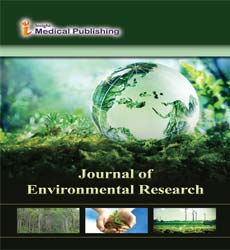Conversion of Putrescible Components of Municipal Solid Waste into Organic Fertilizer by Aerobic Composting
Abstract
Increasing amount of municipal solid waste (MSW) because of overgrowing population and itâ??s openly dumping practice has created many environmental as well as socio-economic problems in developing countries. The putrescible components of MSW such as fruit, vegetable and yard wastes are major components of MSW and mostly higher in quantity than rest of components. The conversion of these components into organic fertilizer have many advantages like soil fertility enhancement, reduction of chemical fertilizer and reduction of greenhouse gases emissions during burning of putrescible components along with other components of MSW. This study was performed for conversion of putrescible components into organic fertilizer. Three composting reactors were designed and locally fabricated and operated at different operating conditions. During operation of composting reactors various operating parameters such as moisture content, pH, temperature, organic contents, and inorganic contents were measured and monitored. From comparison of results of all reactors, it has been revealed that static natural air reactor for conversion of putrescible components of MSW into organic fertilizer would be best option as compared to other reactors. The results and finding of study lead to recommend that aerobically conversion of putrescible components of MSW into organic fertilizer may be enhanced at the source of waste generation.
Open Access Journals
- Aquaculture & Veterinary Science
- Chemistry & Chemical Sciences
- Clinical Sciences
- Engineering
- General Science
- Genetics & Molecular Biology
- Health Care & Nursing
- Immunology & Microbiology
- Materials Science
- Mathematics & Physics
- Medical Sciences
- Neurology & Psychiatry
- Oncology & Cancer Science
- Pharmaceutical Sciences
